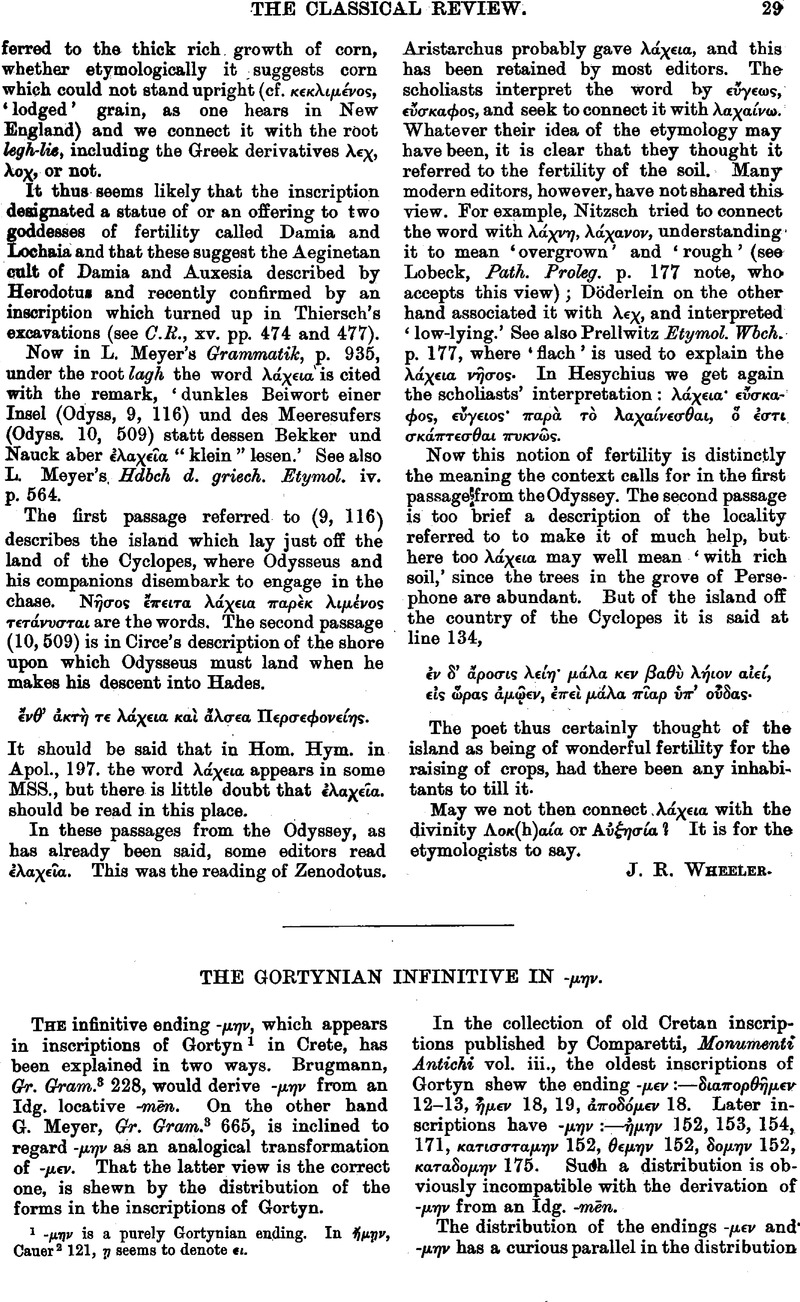Article contents
The Gortynian Infinitive In -μην
Published online by Cambridge University Press: 27 October 2009
Abstract

- Type
- Original Contributions
- Information
- Copyright
- Copyright © The Classical Association 1903
References
page 29 note 1 -μην is a purely Gortynian ending. In ἢμῃν Cauer2 121, ῃ seems to denote ει.
page 30 note 1 As to -εν, Brugmann, Gr. Gram.3 361, suggests that δμεν by δμην may have led to fyev by ἒχενby ἒχηνBut as -μην has turned out to be simply a late Gortynian form, that explanation is impossible. The Rhodian ending -μειν is a contamination of -μεν with -ειν. Is -εν a similar contamination of -ην with -μεν ? Such an explanation would be possible in the Doric dialects. The difficulty lies in Arcadian, which has -εν but not -μεν. But our knowledge of the Arcadian verbal system is very imperfect; it is possible that -εν originated here otherwise than in the Doric dialects.
- 1
- Cited by


